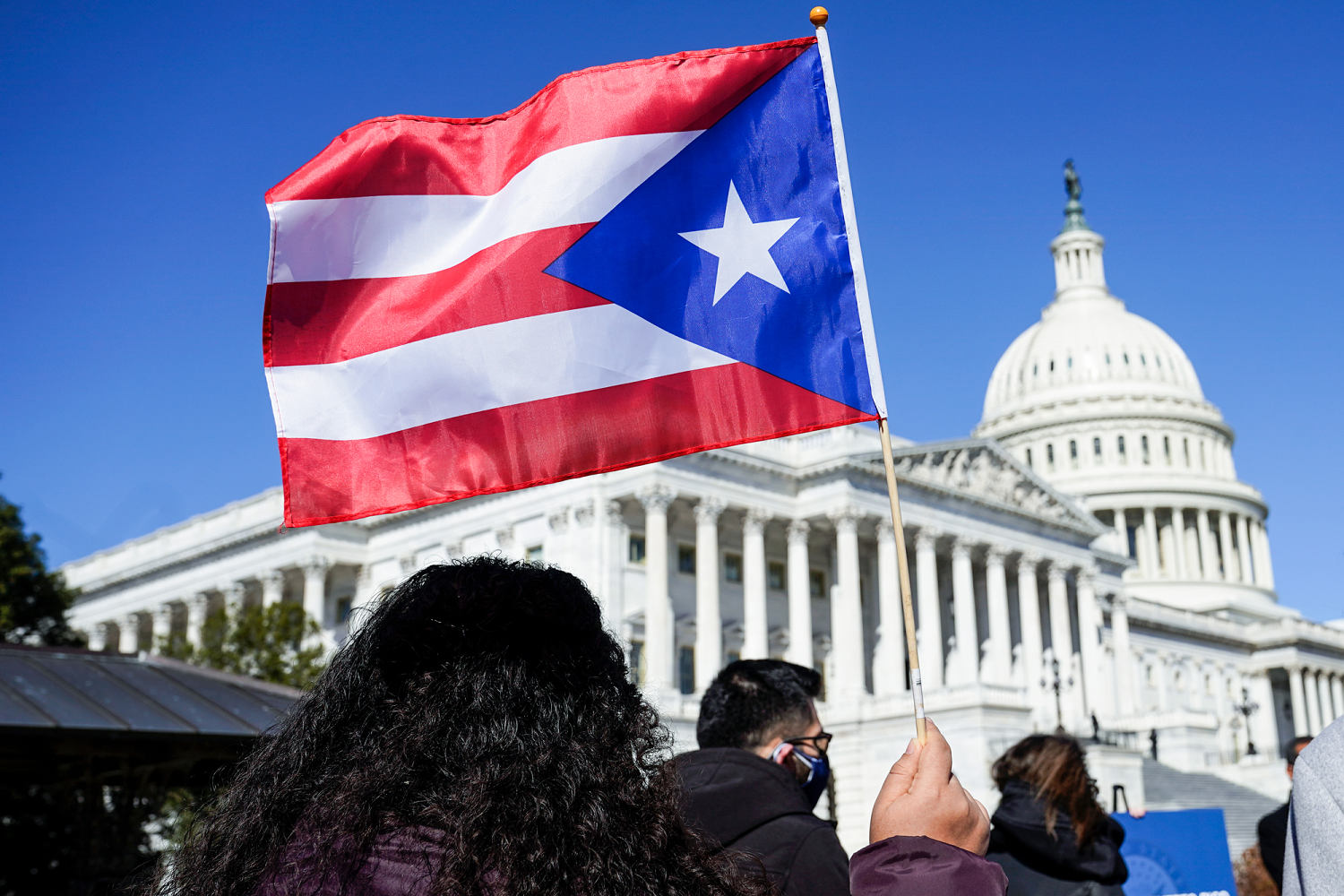Lawmakers seek disavowal of Supreme Court’s racist ‘Insular Cases’ that limited rights of people in U.S. territories


WASHINGTON — A mostly Democratic group of lawmakers are among those launching a renewed push for the Justice Department to condemn racist Supreme Court rulings from a century ago that shaped a legal landscape in which people living in U.S. territories were essentially treated as second-class citizens.
Civil rights groups and professional legal associations are also joining the effort targeting the so-called Insular Cases, beginning with a letter sent to the Attorney General Merrick Garland this week.
Members of both the House and the Senate will also hold a news conference Wednesday to bring attention to the issue.
Among the 43 lawmakers signing the new letter are Sen. Dick Durbin, D-Ill., the chairman of the Senate Judiciary Committee, and Rep. Jerry Nadler, D-N.Y., the ranking member of House Judiciary Committee.
“Today, the Department of Justice has the opportunity to redress this historic error by unequivocally rejecting the discriminatory and racist doctrine of territorial incorporation established by the Insular Cases,” the lawmakers wrote in the letter, a copy of which was obtained by NBC News.
Two Republicans who serve as their territories’ delegates in Congress, James Moylan of Guam and Jenniffer González-Colón of Puerto Rico, also signed on. The other signers are all Democrats.
The Insular Cases were a series of rulings issued in the 1900s, soon after the U.S. had acquired Puerto Rico and other territories, in which the court said people in those jurisdictions did not have all the constitutional rights of those living in the mainland.
Justice Henry Billings Brown referred to territories in a 1901 case as lands “inhabited by alien races” who might not abide by “Anglo-Saxon principles.” Five years earlier, Brown had authored the notorious Plessy v. Ferguson ruling, which endorsed racial segregation.
In a separate opinion in the 1901 case, Justice Edward Douglass White said the U.S. had the right to acquire “an unknown island, peopled with an uncivilized race,” without having to confer full constitutional protections. Several further rulings developed the theory that certain rights but not others applied to people in territories.
To date, the Supreme Court itself has not been receptive to pleas that it officially distance itself from the Insular Cases. Only two of the nine justices, conservative Neil Gorsuch and liberal Sonia Sotomayor, have expressed concerns about the precedents’ remaining on the books.
In a 2022 opinion, Gorsuch suggested the court take up a case in which the Insular Cases could be reversed, saying that they include “ugly racial stereotypes” and that their flaws are “as fundamental as they are shameful.”
Later in 2022, the court declined to take up a case concerning the rights of American Samoans that could have given the justices the opportunity to address the matter.
Civil rights groups and some lawmakers have asked the Justice Department to abandon reliance on the cases. The Justice Department has made some statements distancing itself from the rulings but has not expressly repudiated them.
In a court filing last month, for example, Justice Department lawyers wrote that the government agreed with critics that “aspects of the Insular Cases’ reasoning and rhetoric, which invoke racist stereotypes, are indefensible and repugnant.”
Neil Weare, a co-director of an advocacy group called Right to Democracy, which has taken aim at the Insular Cases, said the Justice Department “continues to take a step in the right direction but has fallen short of unequivocally condemning the Insular Cases.”
The new letter would be followed by other actions, which could include new legal filings, he added.
Rep. Raúl Grijalva, D-Ariz., who is ranking member of the Natural Resources Committee and helped organize the letter, said in a statement that the Justice Department should “go further and unequivocally reject these racist decisions, much as it has for other Supreme Court opinions that relied on racist stereotypes that do not abide by the Constitution’s command of equality and respect for rule of law.”
There is precedent for such an action, with the Justice Department in 2011 issuing an “admission of error” for its role in the 1944 Supreme Court ruling in a case called Korematsu v. United States, which upheld the internment of Japanese Americans during World War II.
The Supreme Court in 2018 officially repudiated Korematsu, with Chief Justice John Roberts saying it was “gravely wrong on the day it was decided.”
A Justice Department spokesman had no immediate comment on the new letter.
There are five U.S. territories: Puerto Rico, American Samoa, Guam, the Virgin Islands and the Northern Mariana Islands. Puerto Rico, with about 3 million residents, is by the far the largest by population.







